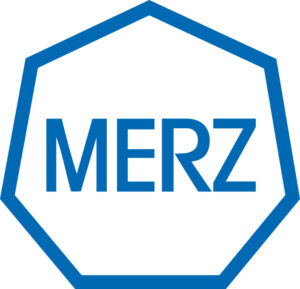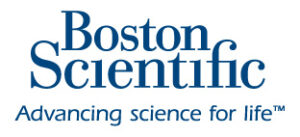Thursday, September 23, 2021
Friday, September 24, 2021
Saturday, September 25, 2021
Thursday, September 23, 2021
15:00 – 15:30
Opening of the Congress
dr hab. n. med. Paweł Tabakow, prof. UM
Katedra Neurochirurgii Uniwersytetu Medycznego we Wrocławiu
prof. dr hab. Szymon Dragan
Prorektor ds. Klinicznych Uniwersytetu Medycznego we Wrocławiu
15:30 – 18:00
Inaugural lectures of guests
15:30 – 16:00
Application of new technological developments in DBS surgery
Stefan Vilsmeier
Brainlab/Monachium
16:00 – 16:30
Terapia genowa mózgu. Rzeczywistość czy przyszłość
prof. dr hab. n. med. Mirosław Ząbek
Interwencyjne Centrum Neuroterapii w Klinice Neurochirurgii CMKP Szpitala Bródnowskiego w Warszawie
16:30 – 17:00
Brain-Computer Interfaces for direct electrical stimulation to enhance memory
and cognitive functions
dr Michal T. Kucewicz
Mayo Clinic, Minnesota, USA/Politechnika Gdańska
17:00 – 17:30
Neuromodulacja jako wspomaganie powrotu świadomości
prof. dr hab. n. med. Wojciech Maksymowicz
Katedra Neurochirurgii, Uniwersytet Warmińsko-Mazurski w Olsztynie
17:30 – 18:00
Rozwój neurochirurgii czynnościowej w Polsce
płk. dr n. med. Jacek Furtak
Klinika Neurochirurgii, 10 Wojskowy Szpital Kliniczny w Bydgoszczy
18:15 – 20:15
SPOTKANIE STACJONARNE:
“Głęboka Stymulacja Mózgu (DBS) w zaburzeniach psychicznych opornych na leczenie”
Spotkanie polskich zespołów badawczych i dyskusja nad wspólnym projektem naukowym.
prof. dr hab. n. med. Joanna Rymaszewska / dr hab. n. med. Paweł Tabakow, prof. UM
Friday, September 24, 2021
09:00 – 11:00
WARSZTAT STACJONARNY – INOMED
Stereotactic Radiofrequency Thermocoagulations: Planning principles
dr Yaroslav Parpaley
![]()
10:30 – 11:00
WYKŁAD WPROWADZAJĄCY
Zaburzenia świadomości u pacjenta po urazie mózgu 
prof. dr hab. n. med. Konrad Rejdak
Klinika Neurologii, Szpital Kliniczny nr 4 w Lublinie
11:00 – 13:00
SESSION I “Neurosurgical procedures in movement disorders” part 1.
11:00 – 11:15
Treating aggression and self-destructive behaviors by stimulating the nucleus accumbens: a case series
prof. dr hab. n. med. Marek Harat / dr n. med. Marzena Zaborowska
Klinika Neurochirurgii 10 Wojskowego Szpitala Klinicznego w Bydgoszczy
11:15 – 11:30
The impact of electrical stimulation of the brain and spinal cord on iron and calcium-phosphate metabolism
dr hab. n. med. Paweł Sokal, prof. UMK
Klinika Neurochirurgii i Neurologii, Szpital Uniwersytecki im. Jana Biziela w Bydgoszczy
11:30 – 11:45
Cerebellar structural connectivity patterns in Parkinson disease patients treated with Deep Brain Stimulation
dr n. med. Mikołaj Pawlak
Klinika Neurologii i Chorób Naczyniowych Układu Nerwowego Uniwersytetu Medycznego w Poznaniu
11:45 – 12:00
The role of brain atrophy in motor response to deep brain stimulation for Parkinson’s disease
dr n. med. Rafał Wójcik
Klinika Neurochirurgii i Onkologii Układu Nerwowego, Uniwersytet Medyczny w Łodzi
12:00 – 12:30
The Impact of Directional DBS Systems on Primary Cell Longevity 
prof. dr. med. Jan Vesper
Head of the Center for Neuromodulation at the University Medical Center Düsseldorf (UKD)
12:30 – 13:00
Discussion panel on individual lectures
prof. dr hab. n. med. Marek Harat,
prof. dr hab. n. med. Mirosław Ząbek,
dr hab. n. med. Paweł Tabakow, prof. UM,
prof. dr med. Jan Vesper
13:00 – 13:15
Coffee break
13:15 – 15:50
SESSION I “Neurosurgical procedures in movement disorders ” part 2.
13:15 – 13:45
Głęboka stymulacja mózgu w leczeniu choroby Parkinsona 
dr hab. n. med. Michał Sobstyl
Klinika Neurochirurgii, Instytut Psychiatrii i Neurologii, Warszawa
13:45 – 14:15
Terapia FAST – nowy paradygmat stymulacji rdzenia kręgowego 
prof. dr Jarosław K. Maciaczyk
Katedra Stereotaktycznej i Funkcjonalnej Neurochirurgii Uniwersytet w Bonn
14:15 – 14:35
Accuracy and precision of manual, atlas-based and automated anatomical segmentation supported targeting – comparison of neuroimaging, neurophysiological, clinical data and electrode localisation
lek. Katarzyna Smarzewska
Katedra Neurochirurgii Uniwersytetu Medycznego we Wrocławiu
14:35 – 14:50
Augmented intraoperative analysis of the microrecording signals for precise mapping of the therapeutic sites
mgr Władysław Średniawa
Politechnika Gdańska oraz Instytut Biologii Doświadczalnej im. M. Nenckiego PAN w Warszawie
14:50 – 15:05
Bilateral Pallidal Stimulation in a Family with Myoclonus Dystonia Syndrome due to a Mutation in Sarcoglycan Gene
lek. Angelika Stapińska-Syniec
Klinika Neurochirurgii, Instytut Psychiatrii i Neurologii w Warszawie
15:05 – 15:15
Deep Brain Stimulation Procedure Complicated By Spontaneously Resolved Pneumothorax In a Patient with Cervical Dystonia
lek. Angelika Stapińska-Syniec
Klinika Neurochirurgii, Instytut Psychiatrii i Neurologii w Warszawie
15:15 – 15:25
Skin-related Complications following Deep Brain Stimulation surgery: A single-center retrospective analysis of 444 patients who underwent DBS surgery
lek. Angelika Stapińska-Syniec
Klinika Neurochirurgii, Instytut Psychiatrii i Neurologii w Warszawie
15:25 – 15:35
Deep Brain Stimulation Procedure Complicated By Intracerebral Infection of DBS Lead Due to the Outbreak of a COVID-19 Pandemic
dr hab. n. med. Michał Sobstyl
Klinika Neurochirurgii, Instytut Psychiatrii i Neurologii w Warszawie
15:35 – 15:50
Discussion panel on individual lectures
prof. dr hab. n. med. Marek Harat
prof. dr hab. n. med. Mirosław Ząbek
dr hab. n. med. Paweł Tabakow, prof. UM
prof. dr hab. n. med. Sławomir Budrewicz
dr hab. n. med. Michał Sobstyl
15:50 – 16:15
Lunch break
16:15 – 17:45
SESSION II “New possibilities of neurosurgical treatment in mental disorders” part 1.
16:15 – 16:40
Long-term follow-up efficacy of deep brain stimulation (DBS) in the treatment of obsessive compulsive disorder (OCD)
dr n. med. Artur Weiser / dr n. med. Patryk Piotrowski
Katedra Neurochirurgii Uniwersytetu Medycznego we Wrocławiu/Katedra Psychiatrii Uniwersytetu Medycznego we Wrocławiu
16:40 – 17:00
Jakie objawy faktycznie redukuje ciągła lub przerywana przezczaszkowa stymulacja magnetyczna w zaburzeniach obsesyjno-kompulsywnych?
dr n. med. Patryk Piotrowski
Katedra Psychiatrii Uniwersytetu Medycznego we Wrocławiu
17:00 – 17:35
Discussion panel on individual lectures
prof. dr hab. n. med. Marek Harat
prof. dr hab. n. med. Joanna Rymaszewska
dr hab. n. med. Paweł Tabakow, prof. UM
17:35 – 18:00
Coffee break
18:00 – 18:30
Quo vadis DBS 
prof. Jarosław K. Maciaczyk
Katedra Stereotaktycznej i Funkcjonalnej Neurochirurgii Uniwersytet w Bonn
18:30 – 20:30
SESSION II “New possibilities of neurosurgical treatment in mental disorders” part 2.
Sesja pod patronatem:![]()
18:30 – 19:00
Stimulation of the slMFB-limbic STN complex in treatment-resistant major depression – a case report.
dr hab. n. med. Paweł Tabakow, prof. UM / prof. dr hab. n. med. Joanna Rymaszewska*
Katedra Neurochirurgii Uniwersytetu Medycznego we Wrocławiu / *Katedra Psychiatrii Uniwersytetu Medycznego we Wrocławiu
19:00 – 19:15
Does longer mean better? The effectiveness of the classical (rTMS) to intense (TBS) magnetic stimulation protocol in depression
lek. Julian Maciaszek
Katedra Psychiatrii Uniwersytetu Medycznego we Wrocławiu
19:15 – 19:30
Treating aggression and self-destructive behaviors by stimulating the nucleus accumbens: a case series
lek. Michał Kiec
Klinika Neurochirurgii 10 Wojskowy Szpital Kliniczny z Polikliniką w Bydgoszczy
19:30 – 20:00
Improved Psychosocial and Functional Outcomes and Reduced Opioid Usage Following Burst Spinal Cord Stimulation 
prof. Steven M. Falowski
MD, Director, Functional Neurosurgery, Neurosurgical Associates of Lancaster, Pensylwania, USA
20:00 – 20:30
Discussion panel over individual lectures
prof. dr hab. n. med. Marek Harat
prof. dr hab. n. med. Joanna Rymaszewska
dr hab. n. med. Paweł Tabakow, prof. UM
prof. Steven M. Falowski
Saturday, September 25, 2021
09:00 – 10:45
Session III “New directions of neuromodulation in the treatment of pain, spasticity, epilepsy, spinal cord injuries and disturbances of consciousness” part 1.
09:00 – 09:30
Selection of therapeutic options in drug-resistant epilepsy – optimization of pharmacotherapy and evaluation for surgery.
dr n. med. Monika Służewska-Niedźwiedź
Klinika Neurologii Uniwersytetu Medycznego we Wrocławiu
Wykład pod patronatem ![]()
09:30 – 10:00
Superior Pain Relief proven! DTM™ SCS RCT – 12 months data results 
dr Ashish Gulve
President, Neuromodulation Society of UK & Ireland, Hon Treasurer British Pain Society
10:00 – 10:20
Treatment effectiveness determinants drug-resistant epilepsy by stimulation of the vagus nerve
lek. med. Edyta Zwolińska
Klinika Neurochirurgii 10 Wojskowego Szpitala Klinicznego z Polikliniką w Bydgoszczy i Oddział Neurochirurgii Wojewódzkiego Szpitala Dziecięcego im. J. Brudzińskiego w Bydgoszczy
10:20 – 10:45
Discussion panel on individual lectures
prof. dr hab. n. med. Juliusz Huber
dr hab. Paweł Sokal prof. UMK
prof. dr hab. n. med. Wojciech Maksymowicz
prof. dr hab. n. med. Konrad Rejdak
dr n. med. Wojciech Fortuna
dr n. med. Monika Służewska – Niedźwiedź
10:45 – 11:00
Coffee break
11:00 – 12:50
SESSION III “New directions of neuromodulation in the treatment of pain, spasticity, epilepsy, spinal cord injuries and disturbances of consciousness” part 2.
11:00 – 11:20
A single-center retrospective analysis of the implantation of the non-rechargeable Prime Advanced MRI internal pulse generators for the complex regional pain syndrome treatment
dr n. med. Marek Prokopienko
Klinika Neurochirurgii Instytutu Psychiatrii i Neurologii w Warszawie
11:20 – 11:40
The spinal cord stimulation hardware-related complications and their management: a single-center retrospective analysis of the implantation of the non-rechargeable Prime Advanced MRI internal pulse generators in different pain conditions
dr n. med. Marek Prokopienko
Klinika Neurochirurgii Instytutu Psychiatrii i Neurologii w Warszawie
11:40 – 12:00
The peripheral nerve stimulaton of lower extremity in functional recovery of muscle motor units in patients after incomplete spinal cord injury
prof. dr hab. n. med. Juliusz Huber
Zakład Patofizjologii Narządu Ruchu, Uniwersytet Medyczny w Poznaniu
12:00 – 12:20
Treatment of patients after incomplete cervical or thoracic spinal cord injury using the transcranial magnetic stimulation rTMS
lek. Katarzyna Leszczyńska
Zakład Patofizjologii Narządu Ruchu, Uniwersytet Medyczny w Poznaniu
12:20 – 12:50
Discussion panel on individual lectures
prof. dr hab. n. med. Juliusz Huber
dr hab. Paweł Sokal prof. UMK
prof. dr hab. n. med. Wojciech Maksymowicz
dr n. med. Wojciech Fortuna
12:50 – 13:00
Summary and closure of the Conference
dr hab. n. med. Paweł Tabakow, prof. UM